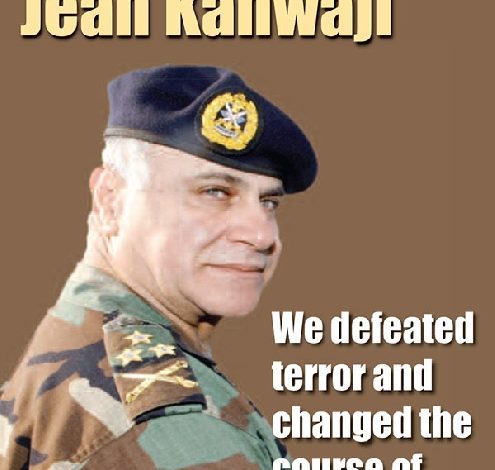
BEIRUT — The Lebanese town of Arsal was little-known to the outside world prior to the start of the civil war in Syria. But after thousands of Syrian refugees and militants linked to Syrian rebels flooded the town since the end of 2011, Arsal started making regional and international headlines.
Two weeks ago, Arsal became the first place in Lebanon to witness the presence of Islamic State militants who raised their black flags across the town before the Lebanese army drove them out to the barren land near the Syrian border.
Clashes erupted between the army and both Islamic State and Nusra Front militants, after the extremist groups attacked Lebanese army bases around Arsal and kidnapped 42 soldiers, most of whom are still in the custody of the militants.
In an interview with The Arab American News, General Jean Kahwaji, the chief of the Lebanese Armed Forces, discussed the battle of Arsal, urging the facilitation of the promised $3 billion Saudi grant to provide modern military equipment for the army.
Kahwaji, who took leadership of the armed forces after former chief Michel Suleiman was elected as a consensus president of the republic in 2008, said the army is ready and on alert to face the threat of the terrorism.
Below is our interview with Kahwaji, which was conducted last week.
The Arab American News: What happened in Arsal?
Jean Kahwaji: I can say that Lebanon was rescued from a catastrophe in Arsal.
TAAN: How so?
JK: There was a dangerous plan for Lebanon. If it had succeeded, the country would have collapsed. The terrorist groups were aiming to make Lebanon another Iraq or another Syria by provoking a sectarian war between Sunnis and Shi’a, but the army struck these groups with an iron fist. I would not be exaggerating when I say we destroyed them and changed the changed the course of history.
TAAN: Did the matter end there?
JK: What was achieved by the army was huge, and I think all Lebanese know the importance of that success; but at the same time, I wouldn’t say that the matter is over. The danger still exists, as long as these groups are still in Arsal’s barren land and might attack Lebanon. For our part, we are ready to confront them again and disallow them from compromising Lebanon’s civil peace.
TAAN: What was the terrorists’ plan?
JK: The militants’ goal was to turn Arsal into a spearhead to attack neighboring Shi’a towns to create a sectarian storm that would destroy Lebanon.
TAAN: There are people who hold the army responsible for starting the clashes in Arsal.
JK: This is absolutely not true. The attack on army bases was preplanned by the terrorist groups. It is not true that arresting Imad Jomaa, a militant group leader, sparked the fighting. When the armed forces arrested him, he was conducting the final training for the attack. His confession led to the arrest of many terrorists across the country.
TAAN: So Jomaa’s arrest is not the reason?
JK: No, it’s not. As soon as we arrested him, the terrorist groups waged attacks against the Lebanese army bases around Arsal. At that time, we were interrogating him and he made dangerous confessions about preparing a wide-scale military operation targeting the army and Shi’a villages around Arsal and similar attacks in Akkar and other regions.
TAAN: Where are the missing soldiers?
JK: When the militants attacked the army bases, they used heavy artillery and rocket-propelled grenades. The soldiers engaged in heavy clashes, and a number of them were martyred or wounded. Some soldiers went missing. We think the militants took them to caves in the barren land around Arsal.
TAAN: How do you plan on freeing the missing soldiers?
JK: This issue is our priority, The same way we are loyal to the blood of our martyrs and to every soldier who was wounded in the battlefield, the army is also committed to the cause of the missing soldiers. We will not spare any efforts to bring them back. We will not negotiate on the blood of our martyrs no matter what the price is. This issue cannot be postponed.
TAAN: Did Hizbullah help you recapture the base from the terrorist groups?
JK: Absolutely not. This is not true. The Lebanese army alone was fighting the militants on the battlefield. There was no direct or indirect intervention by Hizbullah. An army brigade drove the terrorists out of the bases and inflicted heavy losses on them, leaving more than 150 militants dead and 250 injured.
TAAN: How do you respond to the voices criticizing the army?
JK: The army is strong and guarded. Its morale is high and does not look for a price for its sacrifices. Hence, it is not affected by any political campaigns against it.
TAAN: Any final comments?
JK: Terrorism tried to assassinate Lebanon. That was the plan. It should be known that the army fought for Lebanon in Arsal, for the entirety of Lebanon. If the terrorists’ plans had succeeded— God forbid— would there be a state left in Lebanon? Would there be a Lebanon at all? The army fought the battle of survival of Lebanon and won.






Leave a Reply